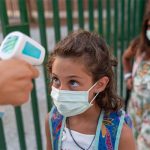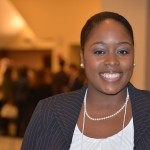Editor’s Note: The following piece was originally published in UConn Today. In-person, hybrid, remote, and/or home-school – the options for K-12 schooling during the pandemic are complicated, each with their own pros and cons. UConn Today asked psychologist Sandra Chafouleas, Board of Trustees Distinguished Professor and Neag Endowed Professor in the Department of Educational Psychology, […]
The panel discussion will center on S. 4360: Counseling Not Criminalization in Schools Act. Introduced by Senator Murphy, S. 4360 is a bill to reduce police presence and increase resources for counseling in schools, with aims “to divert Federal funding away from supporting the presence of police in schools and toward evidence-based and trauma informed services that address the needs of marginalized students and improve academic outcomes” in order to “create safe and inclusive schools for all students.
In-person, hybrid, remote, and/or homeschool – the options for K- through-12 schooling during the pandemic are complicated, each with their own pros and cons. UConn Today asked psychologist Sandra Chafouleas, Board of Trustees Distinguished Professor and Neag Endowed Professor in the Department of Educational Psychology and co-director of the UConn Collaboratory on School and Child Health, about the importance of social and emotional health for children and their caregivers, particularly this year.
A leadership program for undergraduate women at UConn has proven so successful the funder has donated $1.2 million to extend it for at least three years.
The grant provides scholarships and a transformative experience to several juniors through the BOLD Women’s Leadership Network. The BOLD program cultivates courageous leadership and career success in young women during college and after they complete their studies.
News headlines seem to suggest consensus about how bad the debate was, some deeming it the worst in presidential history and an embarrassment to society. The theme of many stories covering the event can be summed up in a single word: dysfunction. Dysfunctional debates are characterized by not listening, jumping in and cutting others off, grandstanding, boasting, using sarcastic or biting tones, and not acknowledging others.
“News headlines seem to suggest consensus about how bad the debate was, some deeming it the worst in presidential history and an embarrassment to society,” says Sandra Chafouleas, a Board of Trustees Distinguished Professor in the Neag School of Education. “The theme of many stories covering the event can be summed up in a single word: dysfunction. Dysfunctional debates are characterized by not listening, jumping in and cutting others off, grandstanding, boasting, using sarcastic or biting tones, and not acknowledging others.”
Judy Rondeau, Rachael Trowbridge, and Genevieve Rondeau are participating in a Conservation Training Partnership (CTP) program, a part of UConn’s Natural Resources Conservation Academy (NRCA) that pairs high school students with an adult conservation volunteer. NRCA teams work on projects across the state to educate and raise awareness in conservation and environmental concerns. The program includes service learning, so communities and students all benefit from the projects.
“At a crucial time in our history in which talented women continue to struggle with decisions about how to lead and how to blend family well-being with work responsibilities, it is critical for universities to provide training and opportunities for leadership development for intelligent young women to explore their choices and pursue their dreams,” says Sally Reis, who is a Board of Trustees Distinguished Professor of Educational Psychology and leader of the BOLD Women’s Leadership Network.
What counts as “good”? This question gets at the heart of engaging in productive conversations as we describe effective literacy instruction. We explore that inquiry in this episode with Rachael Gabriel and Sarah Woulfin, authors of Making Teacher Evaluation Work: A Guide for Literacy Teachers and Leaders (Heinemann, 2017).
In 2020, the deaths of Ahmaud Arbery, George Floyd, Breonna Taylor, and others led to a resurgence of the Black Lives Matter movement across the nation and around the globe. The revitalization of this movement has come with increased public demand for policy change, and specific calls for anti-racist policies in schools. As a result, many educational leaders are grappling with what this means for their respective contexts, and the extent to which their school or district’s current policies measure up to public demand.




